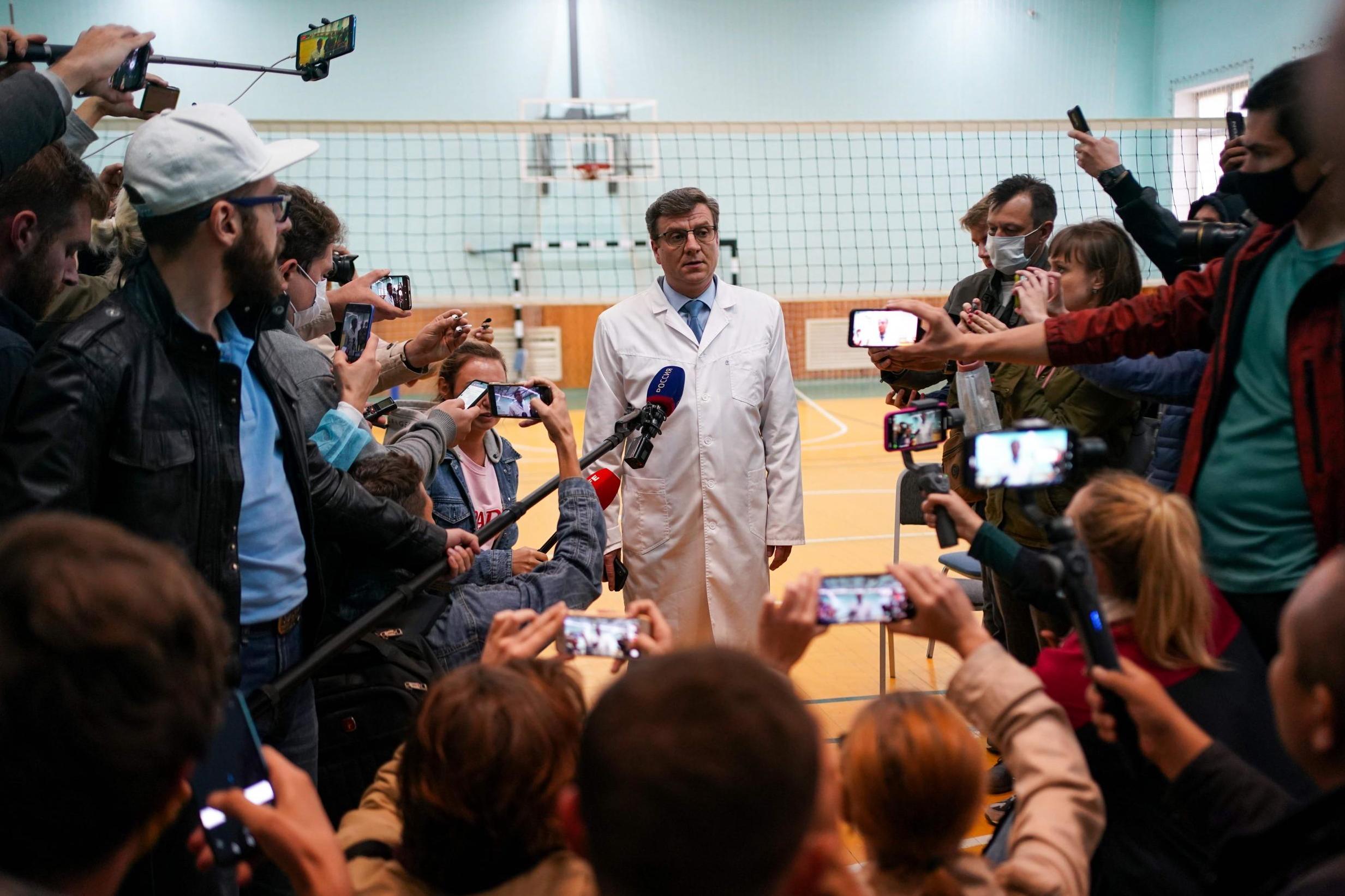Will we ever know what really happened to Putin critic Alexei Navalny?
Moscow has been blamed for a series of high-profile attacks that have often involved poison. But, Oliver Carroll writes, we're unlikely to ever uncover the truth


In the muddled mystery of Aleksei Navalny’s sudden, unexplained sickness, there are no hard facts.
Authorities have offered limited, and often contradictory information. Their latest explanation for the Kremlin critic’s unconscious state borders on the absurd: metabolic imbalances caused by low blood sugar.
What they aren’t doing is behaving like they have any interest in proving their innocence.
As of Friday evening, hospital bosses were still refusing to allow an air ambulance evacuation to Berlin. They claimed the comatose Mr Navalny was too ill to travel – assertions that were flatly rejected by German doctors later allowed to see him in intensive care.
Given past history and the nervousness of doctors, it does not seem too unreasonable an inference to assume Mr Navalny was poisoned — and that foul play was involved.
As the most prominent opposition politician in the country, with a knack for embarrassing members of the elite with corruption investigations, there is no need to search hard for a motive. What is less incontrovertible is who might have initiated it, whether they intended to kill, and why did they move now?
Vladimir Putin and the Kremlin are, of course, in the spotlight.
The president’s twenty years in office is not an era associated with longevity of critics. Opposition politicians, journalists, businessmen and activists have all met their ends prematurely. There are several unproven, but mostly persuasive stories of poison being used against them.
Mr Navalny meanwhile is a political heavyweight, with a huge following, and currently represents the most serious challenge to Mr Putin’s rule.

He was attacked in the heart of Russia and in a place where federal hierarchies are hardly under question. It is hard to believe a systemic actor would carry out an operation without sign-off from above.
Against this is a contrary position: Mr Navalny was such an obvious enemy that Mr Putin stood to gain less from his death than he would lose by being associated with the crime.
The contrast between the two positions distils down to an age-old question among Kremlin watchers: Just how much is Mr Putin actually in charge? Might sub-state actors, especially those who often fulfil outsourced security tasks for the Kremlin, have taken on another freelance task?
These are mostly unanswerable questions.
Certainly, much of Mr Navalny’s most work has been directed not at Mr Putin, but the strongmen oligarchs around him.
“Navalny is a much bigger problem for the entourage than he is for Putin,” says Tatyana Stanovaya, director of the consultancy firm R.Politik, and an expert of the Russian political system. Ms Stanovaya says that she does not believe there could have been a presidential order: “My understanding is that Mr Putin does not see him as a serious threat. His entourage on the other hand frequently mistakes their own interest state for that of the state.”
Whatever the truth of who ordered it, the incident has already had a chilling effect on critics of the regime.
Opposition politician Gennady Gudkov said the attack was being interpreted as a signal to “liquidate” all political figures standing against the regime. “This was a cynical assassination attempt with the approval of those at the top,” said Mr Gudkov. “If I’m honest, I didn’t expect the leadership to stoop so low, but this is where we are.”
Mr Gudkov, who worked in KGB counterintelligence between 1982 and 1993, said there had always been “rumours” Russia’s security agency ran a specialised laboratory for developing and testing toxins. “It was talked about for sure,” he said. “New potions designed to leave minimum traces, or masquerade as harmless substances, but able to leave a victim disabled.”
Asked whether the attack on Mr Navalny represented a return of the ghoulish Soviet secret state, the former operative offers a curt reply.
“It never went away.”
Join our commenting forum
Join thought-provoking conversations, follow other Independent readers and see their replies
66Comments